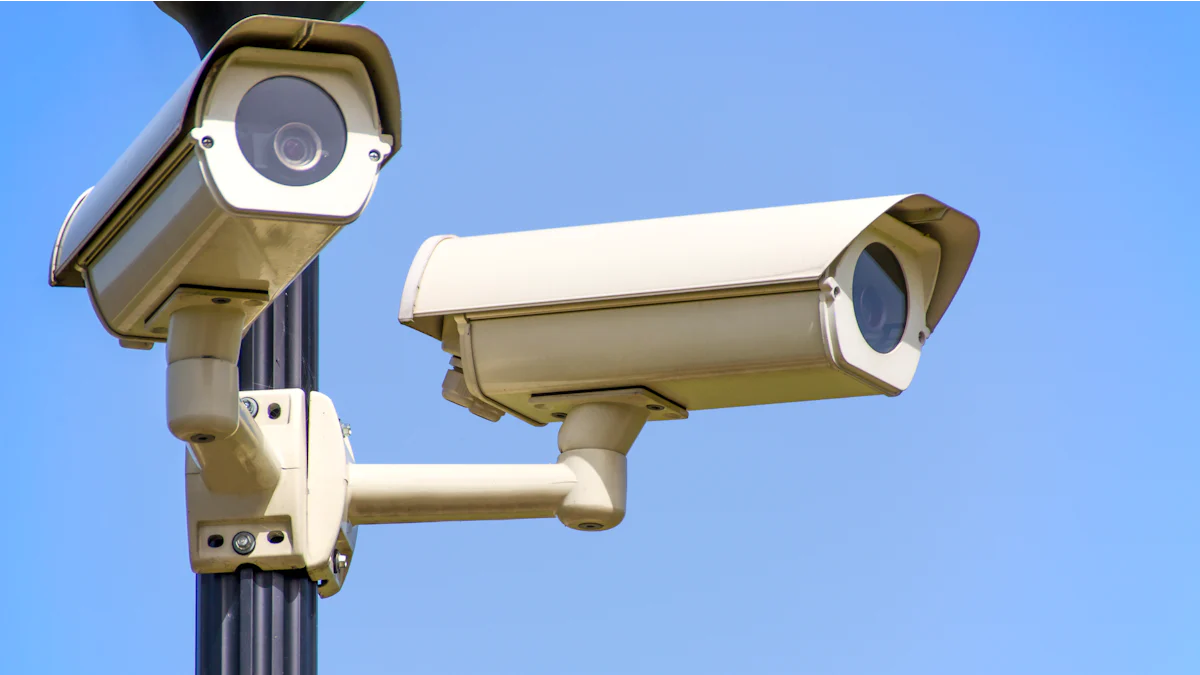Is Video Recording Without Consent Legal in CT? Know the Truth

Understanding Consent in Connecticut
In Connecticut, the concept of Consent holds significant legal weight, especially concerning video and audio recordings. Understanding what Consent truly entails is crucial in navigating the state's laws on recording practices.
What Does Consent Really Mean?
Consent, in simple terms, refers to the explicit permission or agreement given by an individual before any recording takes place. In the context of video recording, it implies that all parties involved must willingly agree to being recorded for it to be considered lawful. Without this consent, recording someone without their knowledge or approval can lead to legal ramifications.
The Importance of Consent in Video Recording
Ensuring proper Consent is not just a matter of legality but also ethics and respect for personal privacy. By obtaining consent before recording, individuals uphold the rights and dignity of those being captured on video. It establishes a foundation of trust and transparency in interpersonal interactions.
Sheri KurdakulNo Comments CONNECTICUT
A Real-World Perspective
According to Connecticut law, obtaining Consent is fundamental when engaging in any form of video recording. Failure to do so can result in violations of privacy rights and potential legal consequences. To delve deeper into this topic, let's explore how these laws play out in real-life scenarios.
The Legal Landscape of Video Recording
In Connecticut, the realm of VIDEO SURVEILLANCE is governed by specific legal boundaries to safeguard individual privacy rights. Understanding when VIDEO SURVEILLANCE is permissible and its role in enhancing security is essential for residents.
VIDEO SURVEILLANCE and Its Legal Boundaries
When considering VIDEO SURVEILLANCE, it is crucial to discern the circumstances under which such monitoring is deemed lawful. The state's laws outline that AUDIO SURVEILLANCE must only occur with the consent of at least one party involved. This requirement ensures that individuals are aware of being recorded, promoting transparency in surveillance practices.
When Is VIDEO SURVEILLANCE Considered Legal?
According to the Connecticut General Statutes, laws prohibiting video surveillance without consent aim to protect against unauthorized recording activities. Under these regulations, individuals must be informed and agree to any video recording that involves them. This legal framework establishes clear guidelines on the permissibility of CCTV usage in various settings.
The Role of Surveillance in Security
Surveillance systems play a pivotal role in enhancing security measures across public and private domains. By utilizing video monitoring technologies, establishments can deter criminal activities and ensure the safety of their premises. Effective surveillance not only aids in crime prevention but also provides valuable evidence for investigations when incidents occur.
Illegal to Record: What the Law Says
Connecticut Laws on Video Recording explicitly address scenarios where it is Illegal to Record individuals without their knowledge or consent. These statutes emphasize the importance of respecting privacy rights and maintaining ethical standards in recording practices.
Understanding the Laws Surrounding Video Recording
The legislation surrounding video recording underscores the significance of obtaining explicit consent before capturing someone's image or audio. Failure to adhere to these laws can result in severe penalties, highlighting the gravity of unauthorized recordings.
Exceptions and Special Cases
While there are exceptions to every rule, Connecticut's stance on video recording emphasizes the need for transparency and accountability in surveillance activities. Special cases may warrant deviations from standard consent requirements, but they must align with legal provisions to ensure compliance with state regulations.
Navigating Public and Private Spaces
In Connecticut, the distinction between public and private spaces significantly impacts the legality of video recording practices. Understanding the nuances of recording in these different settings is essential for residents to avoid potential legal implications.
Video Record Someone in Public Places
When it comes to capturing footage of individuals in public areas, certain considerations must be taken into account. In public spaces where there is no reasonable expectation of privacy, it is generally permissible to video record someone without their explicit consent. However, it is crucial to respect individuals' boundaries and refrain from intrusive recording behaviors.
What You Need to Know About Recording in Public
Recording activities in public locations should prioritize respecting others' privacy while exercising your right to document events. While consent may not be legally required in these settings, being mindful of people's comfort levels and refraining from invasive filming practices is key to ethical recording conduct.
Video Record Someone in Private Settings Without Their Consent
Conversely, when it comes to private settings such as homes or businesses, the rules regarding video recording without consent become more stringent. It is generally illegal to video record someone on private property without their explicit permission due to the expectation of privacy associated with such spaces. Violating this expectation can lead to civil repercussions and legal consequences under Connecticut laws.
The Legal Implications of Recording Without Consent in Private
In private settings, individuals have a heightened expectation of privacy, necessitating explicit consent for any video recording activities. Failing to obtain permission before recording on private property can infringe upon individuals' rights and potentially result in civil disputes related to unauthorized recordings. Therefore, it is imperative to understand and adhere to the regulations governing video recording practices in both public and private domains.
Consent States vs. All-Party Consent States
In the realm of Consent States, variations exist in how different states approach the requirements for recording conversations. Understanding the distinctions between One-Party Consent States and All-Party Consent States sheds light on the nuances of legal frameworks governing audio recordings.
One-Party Consent States and How They Differ
One-Party Consent States permit recording conversations as long as one party involved consents to the recording. In contrast, Connecticut adopts a unique stance, embodying a Hybrid Approach that combines elements of both One-Party and All-Party Consent regulations. This means that either at least one person or all individuals participating in the communication must provide consent for lawful recording to occur.
All-Party Consent States: A Closer Look
On the other hand, All-Party Consent States mandate that every party involved in a conversation must agree to be recorded for it to be considered legal. Comparing Connecticut's stance to these stringent regulations highlights the state's balanced approach towards privacy rights and recording practices.
When delving into Connecticut's laws, it becomes evident that the state upholds a comprehensive framework concerning consent in various contexts. Under Connecticut criminal law, any oral or telephone communication cannot be recorded without consent from at least one party involved, emphasizing respect for privacy rights. Additionally, civil statutes dictate that phone calls should not be recorded without obtaining written consent from all parties or securing verbal agreement at the beginning of the recording process.
Connecticut's adherence to both One-Party and All-Party Consent principles underscores its commitment to safeguarding individual privacy while allowing for necessary recording practices under specific conditions. By navigating this nuanced landscape of consent laws, residents can ensure compliance with legal requirements while respecting each other's rights to privacy and confidentiality.
Practical Advice for Connecticut Residents
Navigating the legal landscape of video and audio recording in Connecticut requires a nuanced understanding of the state's specific laws and regulations. When it comes to recording conversations, residents must be aware of the implications to ensure compliance with privacy rights.
How to Legally Record Conversations
When considering recording phone calls or in-person discussions, it is essential to prioritize obtaining proper consent from all parties involved. Connecticut laws emphasize the significance of consent in any recording activity, whether it involves audio or video capture. To ensure your recordings are legal, always seek explicit permission before initiating any form of recording.
Tips for Ensuring Your Recording Is Legal
Inform All Parties: Before recording any conversation, make sure that every individual participating is aware and consents to being recorded.
Document Consent: Keep a record of consent either through written acknowledgment or verbal agreement at the beginning of the recording.
Disable Audio Features: In workplaces or private settings where audio recording may infringe on privacy rights, consider disabling audio features on surveillance devices to comply with state regulations.
Protecting Your Privacy
In scenarios where you find yourself being recorded without consent, taking proactive steps is crucial to safeguard your privacy rights and address any potential violations effectively.
Steps to Take If You're Recorded Without Consent
Seek Legal Advice: Consult with legal professionals specializing in privacy laws to understand your rights and options.
Document Evidence: Keep records of the unauthorized recordings, including dates, locations, and circumstances surrounding the incident.
File Complaints: Report any instances of illegal recordings to relevant authorities or agencies responsible for upholding privacy regulations in Connecticut.
By staying informed about Connecticut's laws on video and audio recordings and taking proactive measures to uphold privacy rights, residents can navigate recording practices responsibly while protecting their personal privacy.
See Also
Comparison of Lulunami and Sherpatera's Latest HD Cameras
Home Security Camera Battle: 3.0 Megapixel vs. 1080p
The Importance of 360 Degree Car Camera Systems for Safety
Comparison of Wireless 360 Degree Cameras from Different Brands

